Members
Principal Investigator
Dr. Sam Reiter, Associate Professor
Email: samuel.reiter@oist.jp
I was born and raised in Rhode Island, on the east coast of the United States. I did my undergraduate degree at Brown University in Providence, RI. For my PhD. I joined the Brown-NIH graduate partnership program, moving to Bethesda, M.D. to work in the lab of Mark Stopfer at the National Institutes of Health. For my post doctoral work I moved to Germany to join the lab of Gilles Laurent in Frankfurt, Germany. I came to OIST in 2019, and am interested in studying animal brains and behavior.
Ph.D Student
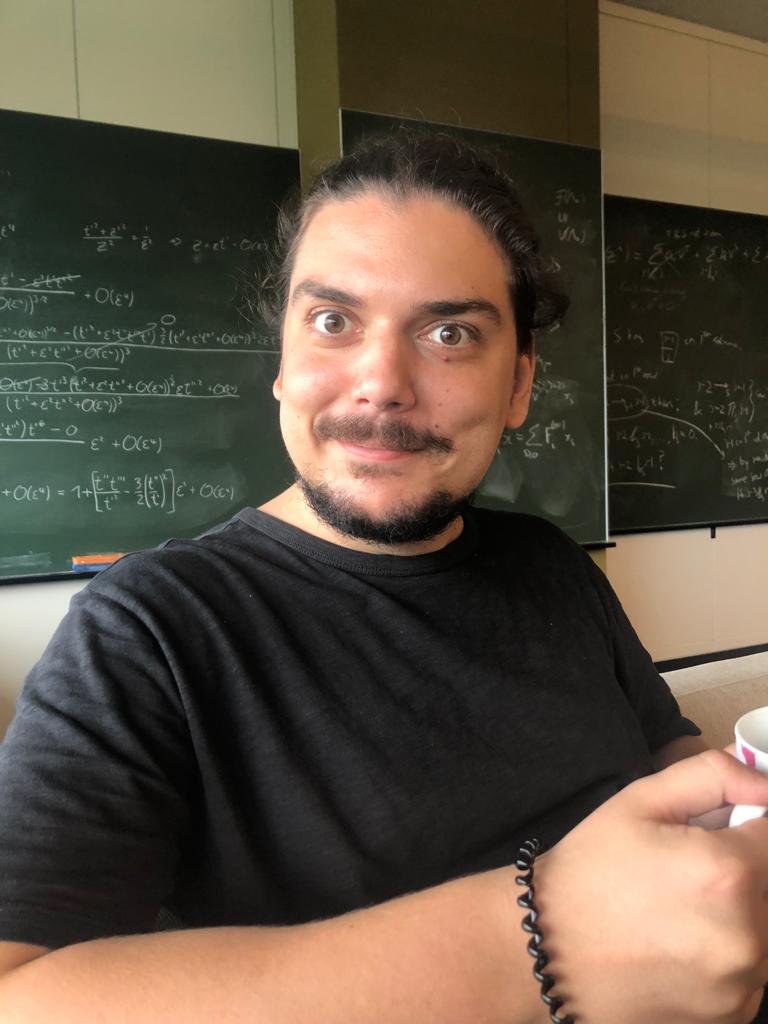
Kostas Tsaridis
Email: konstantinos.tsaridis@oist.jp
I obtained my BSc in Biology from the Aristotle University of Thessaloniki in Greece. Aiming to gain a more interdisciplinary skillset, I moved to Scotland to pursue an MSc in Systems and Synthetic Biology. In 2020, I was given the amazing opportunity to travel to Japan and join OIST as a PhD student, switching my field to Neuroscience in the process. My interests primarily revolve around animal learning and behaviour. Cephalopods are fascinating organisms to study due to their unique and bizarre behaviour repertoire, but also because of the potential insights to be gained from them regarding the evolution of neural systems and cognition in general. For these reasons I’ve joined the Computational Neuroethology Unit as a rotation student, where I will be working in exploring the physiological properties of cephalopod brains. Outside of work, I enjoy playing chess (badly) and the guitar (even worse).
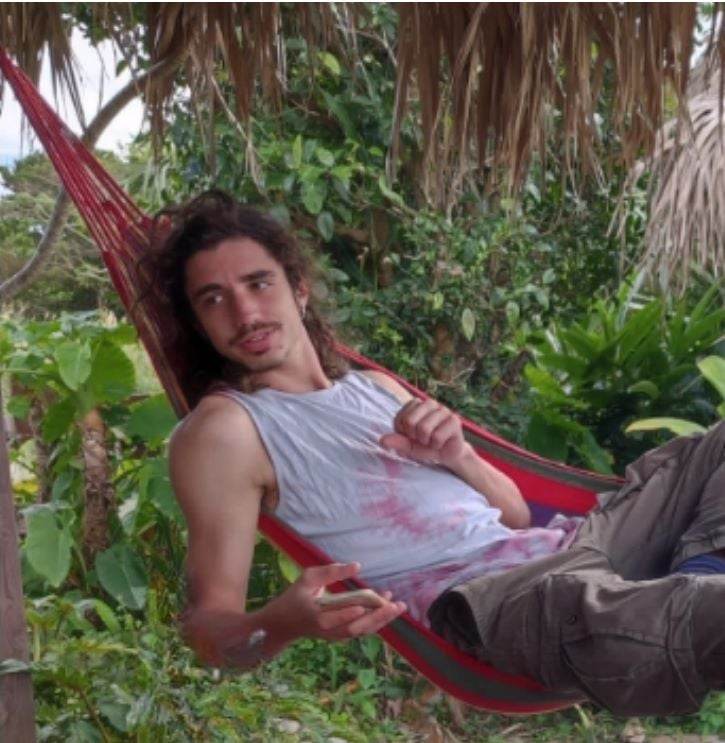
Olivier Fernandez
Email: olivier.fernandez@oist.jp
Originally from Beziers, a small city in the south of France, I have always had a passion for marine life. After completing my Bachelor's degree in Marine Biology at La Rochelle University and a master Biosciences and Modeling of Complex Systems at ENS de Lyon, I found in neuroscience the way to combine my interests in both experimental and theoretical approaches to biology. I discovered cephalopod neuroethology through an internship in Gilles Laurent lab at MPI for Brain Research in Frankfurt, where I focused on studying cuttlefish camouflage behavior. I later joined OIST to continue my studies in that field.
My primary focus within the research unit is studying cephalopod motor control, including camouflage, hunting, and locomotion. I am particularly interested in understanding how these complex behaviors can help us to better understand the evolution of brains and behavior.
When I'm not conducting research, I enjoy a variety of outdoor activities such as rock climbing, diving, and hiking.
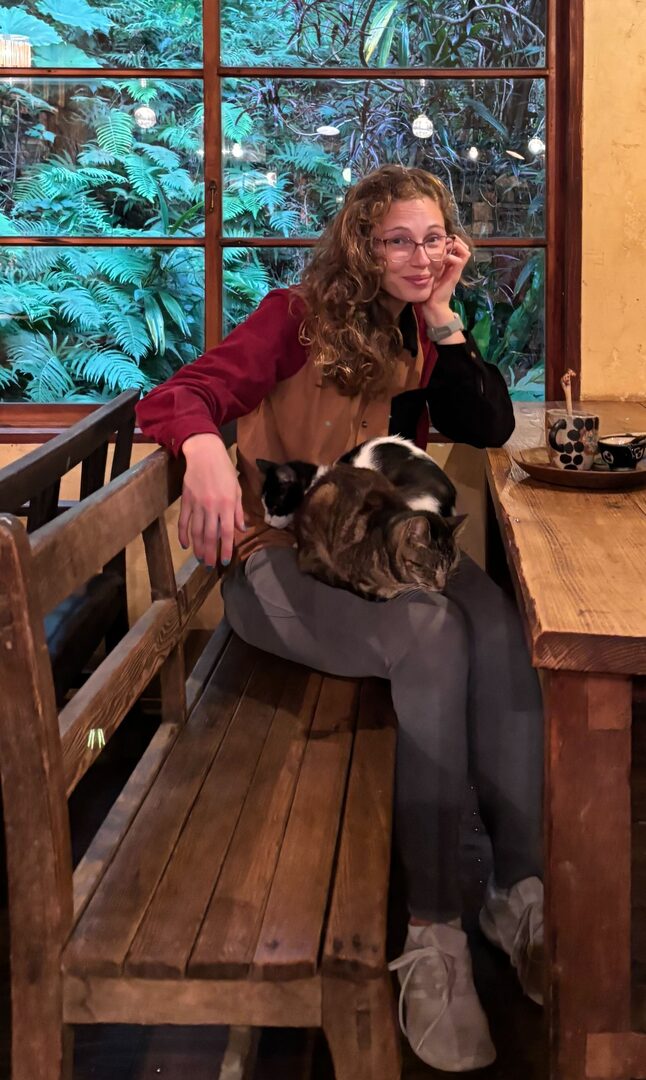
Lada Dolezalova
Email: lada.dolezalova@oist.jp
I grew up in Tábor, a small city in Czech republic. I received a bachelor’s degree in Chemistry from the University of Chemistry and Technology in Prague and moved to Sweden to pursue a degree in Neurochemistry with Molecular Neurobiology at Stockholm University. I got interested in nervous systems of various invertebrates and moved to Okinawa for my PhD. Out of the lab I’m mostly playing ultimate frisbee.
I also like baking. So if the whole PhD thing doesn’t work out plan B is to open up a bakery.
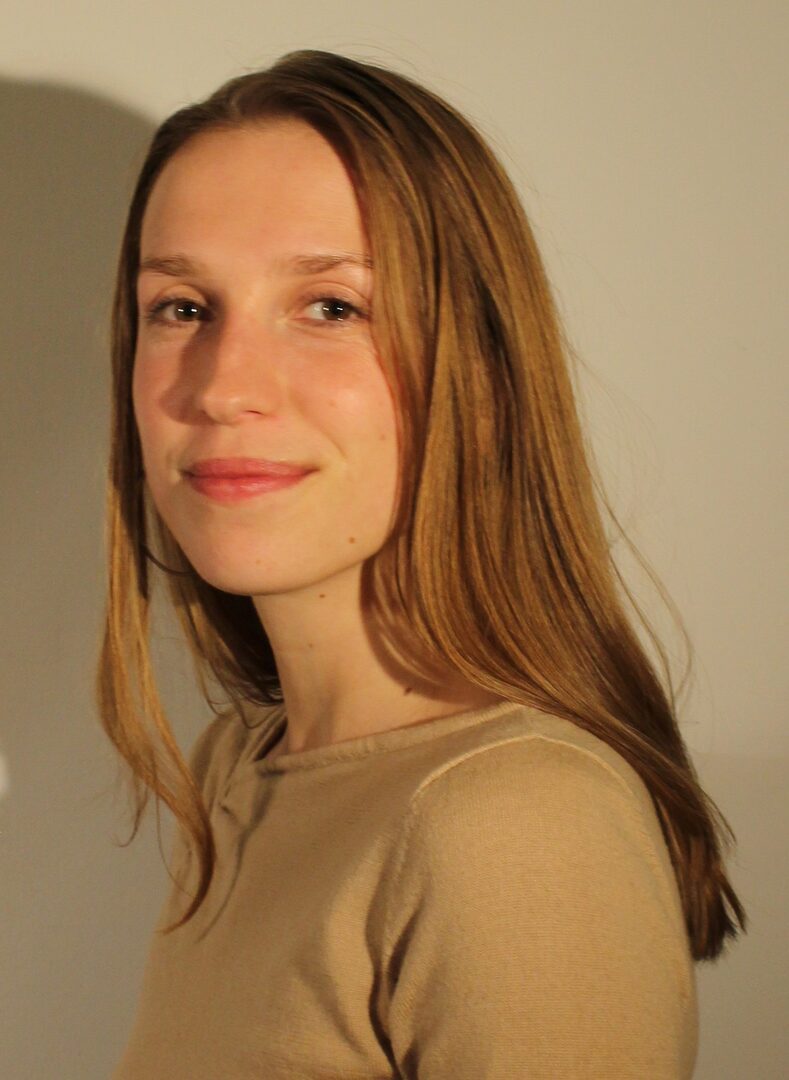
Anouk Beraud
Email: a.beraud@oist.jp
I am originally from Montreal in Quebec, where I completed a Bachelor's degree in Physics and Computer Science at the University of Montreal. Interested by the intersection of science and technology, I pursued a Master's in Bionanotechnology at the Institute for Research in Immunology and Cancer (IRIC), where I developed graphene field-effect transistors to detect biomarkers. While this work was stimulating, I decided to follow my true passion for my PhD, which led me toward the study of animals and their fascinating behavior. I began this journey with an internship in the Biological Physics Theory Unit at OIST, working with Greg Stephens, and now continue my PhD jointly with the Computational Neuroethology Unit. These units really embody what I am most interested in: using the quantitative tools and methods of physics and the new advances of computer science technology to investigate what animals have to teach us. My current research focuses on studying ants, both at the individual and colony scale- it's been a lot of fun ! Beyond academia, I like to read books of all sorts and to explore the beautiful island of Okinawa.
Staff Scientist-Postdoctoral Scholar-Research Fellow

Tomoyuki Mano, Postdoctoral Researcher
Email: tomoyuki.mano1@oist.jp
I entered The University of Tokyo with an interest in neuroscience, but after reading the books by Richard Feynman I decided to major in physics.
After having great fun with single-molecule imaging and soft matter physics, I went to Princeton University for my master's degree where I worked on nano-particle spectroscopy.
Then my interest in neuroscience came back once again, and I conducted my PhD research in the lab of Hiroki Ueda at UTokyo.
There I worked on 3D mouse brain imaging using light-sheet microscopy, and big image data analysis using cloud computing.
Now at Reiter unit, my interest is to apply the hard-core techniques from physics and computer science to understand the complex and interesting anatomy of the cephalopod brains.
Programming has always been my passion and Zen moment, and I write codes to chill my soul.
Outside of the lab, I enjoy running, cooking, and watching anime.

Robert Ross, Interdisciplinary Postdoctoral Scholar (with Pigolotti Unit)
Email: robert.ross@oist.jp
I research the physics of growing active matter. Currently, I am trying to understand how growth influences chromatophore patterning in cephalopods. My thesis is that the same developmental processes can be funneled to different developmental outcomes by altering how the system is grown.
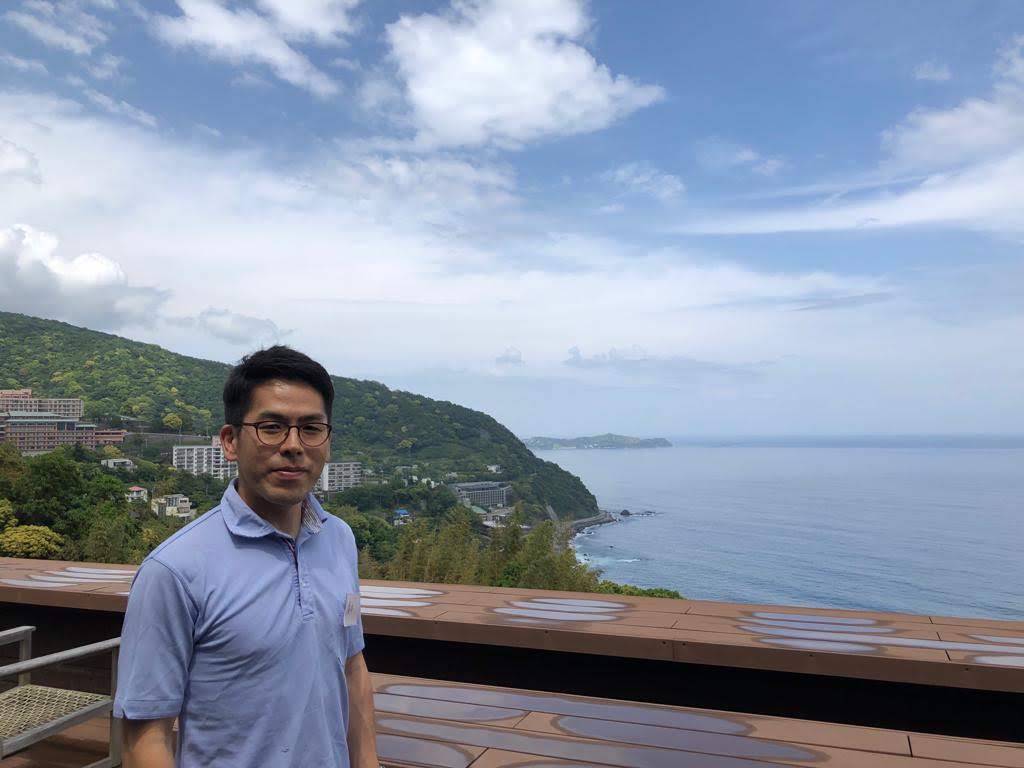
Makoto Hiroi, Staff Scientist (with Stephens Unit)
Email: makoto.hiroi@oist.jp
I was born in Nagasaki, Japan. After completing my Ph.D. in insect physiology in Japan and France (with Teiich Tanimura at Kyushu University and with Frederic Maion-Poll at INA P-G), I moved to Berkeley, California, to work in the lab of Kristin Scott. Back in Japan, I worked with Tetsuya Tabata at Tokyo University. In 2020, I came to OIST, joining Greg Stephens' Biological Physics Theory Unit and Sam Reiter's Computational Neuroethology Unit. I am interested in how animals behave and react to their environments. I want to seek mechanisms or theory underlying volitional behaviors through the quantitative analysis of collective squid behavior. Besides work, I enjoy traveling, but my favorite is cycling along the Okinawa coast.

Alex Harston, JSPS Postdoctoral Fellow
Email: john-harston@oist.jp
I grew up in the UK, and did a BSc in Neuroscience at the University of Edinburgh. I followed that up by working as a research developer at Edinburgh for a year, designing and developing behavioural smartcages and algorithms to study volitional motor control in mice. I moved to London to do a PhD in Computational Neuroscience at Imperial College London, where I worked on understanding the relationship between human vision and motor control using machine learning approaches. I subsequently moved to OIST in 2022, where I'm using my web development experience to work on building a brain atlas web platform for arbitrary species. Outside of the lab, I enjoy filmmaking, playing badminton, and fishing the Okinawan waters.
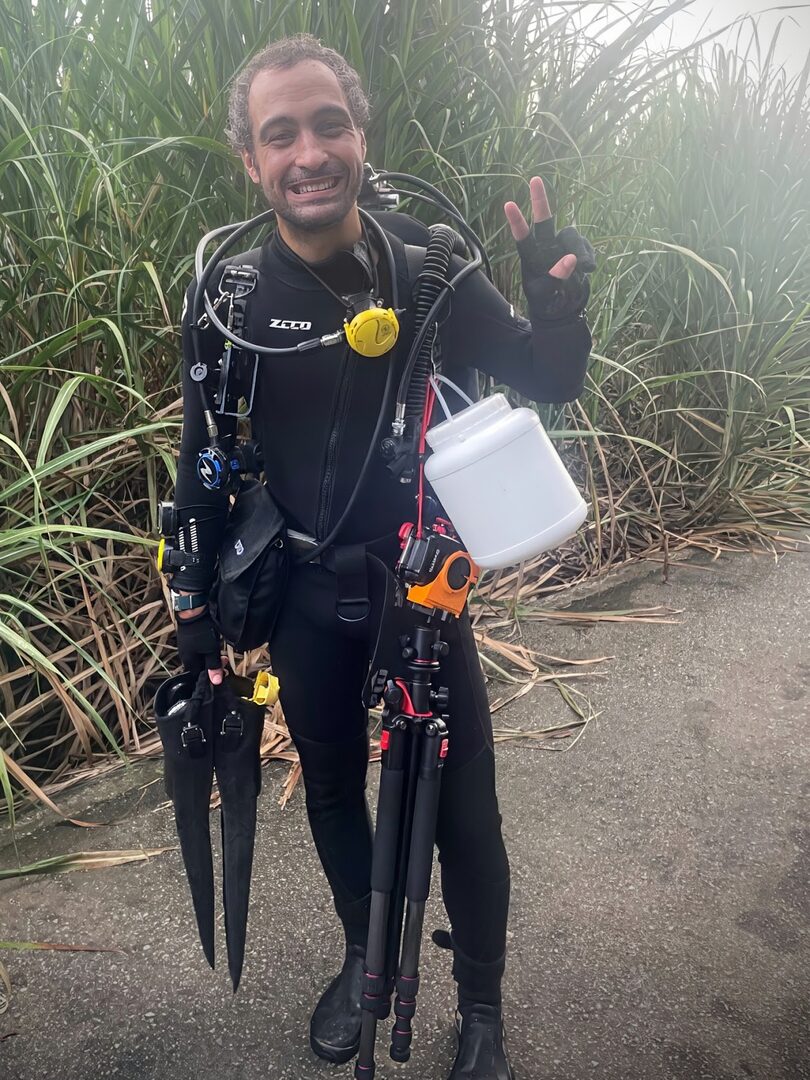
Giovanni Diego Masucci, Postdoctoral Researcher
Email: giovanni.masucci@oist.jp
I was born in Milan and earned my BSc in Biology and my master’s in Marine Biology in Italy. In 2017, my interest in marine ecology and biodiversity brought me to Okinawa, where I completed my PhD in James Reimer's lab at the University of the Ryukyus. My research focused on coral reef ecosystems and the effects of local environmental stressors on coral rubble cryptic invertebrate species.
At OIST, my work has centered on cephalopod aquaculture and husbandry, with a current shift towards ecological field studies. I am particularly interested in animal behavior, species ecology, and responses to environmental changes, including habitat loss and degradation. My research seeks to uncover the resilience and adaptability of marine organisms under growing anthropogenic pressures.
Outside of work, I enjoy cooking, hiking, scuba diving around Okinawa, and spending time with my loved ones.
Rotation Student
Research Intern
Research Support
Chie Edwards, Research Unit Administrator
Email: chie.edwards@oist.jp
Born in Osaka Japan. Have been working at OIST as Research Unit Administrator since 2018. Loves baking and sharing!
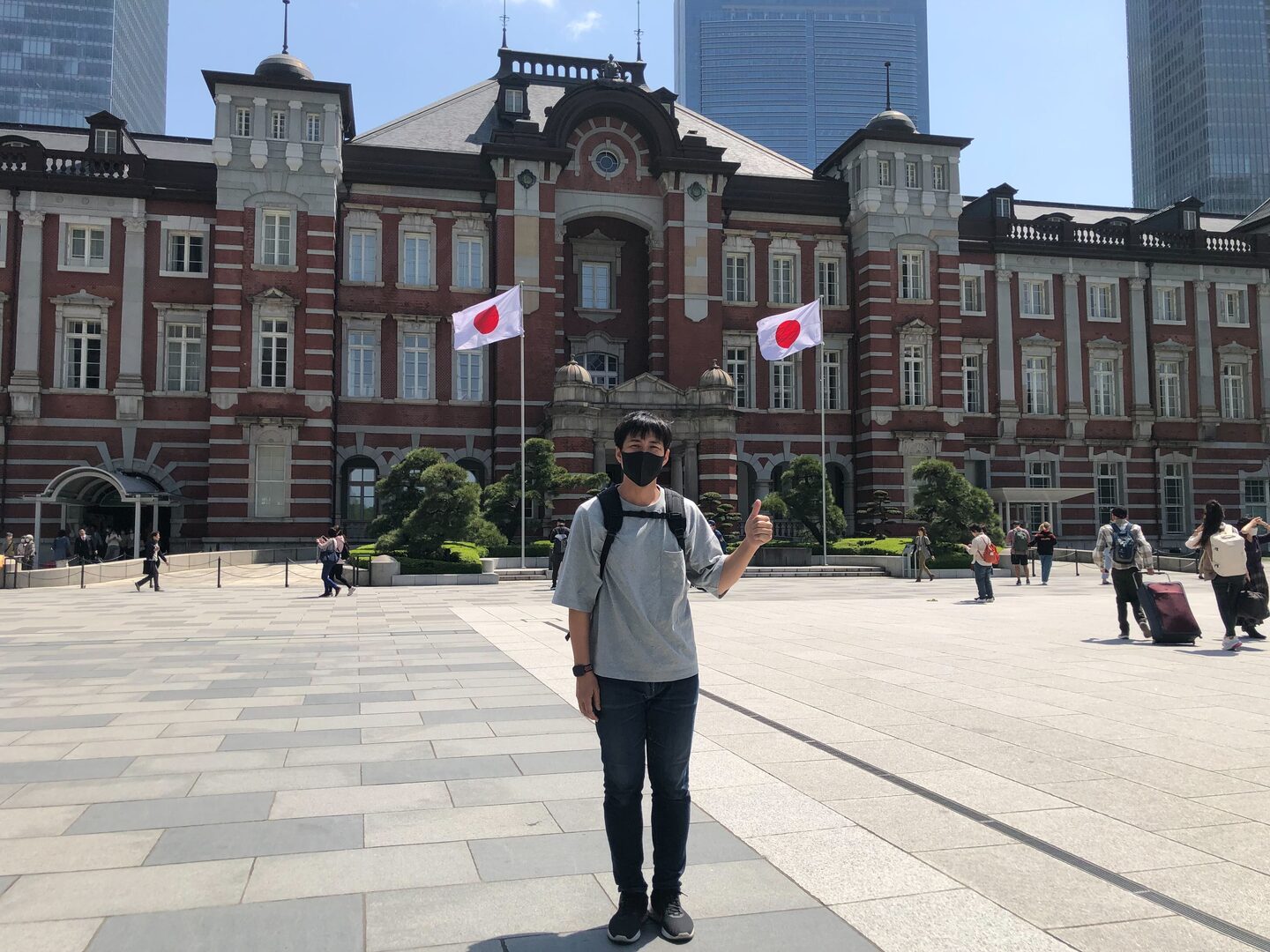
Yutaka Jojima, Research Unit Technician
Email: yutaka.kojima@oist.jp
I am from Gifu Prefecture and came to Okinawa from college.
At the University of the Ryukyus, I belonged to the Department of Marine and Natural Sciences and was at the Waterfront Experimental Station on Sesoko Island.
My hobby is playing volleyball, and I also coach local elementary school students.
At OIST, I was a member of the Masai Lab from 2009 to September 2022, where I mainly supported research on lenses using zebrafish.
Since October 2022, I have been working as part of the Computational Neuroethology Unit. I am looking forward to utilizing my various skills and acquiring new knowledge and techniques.
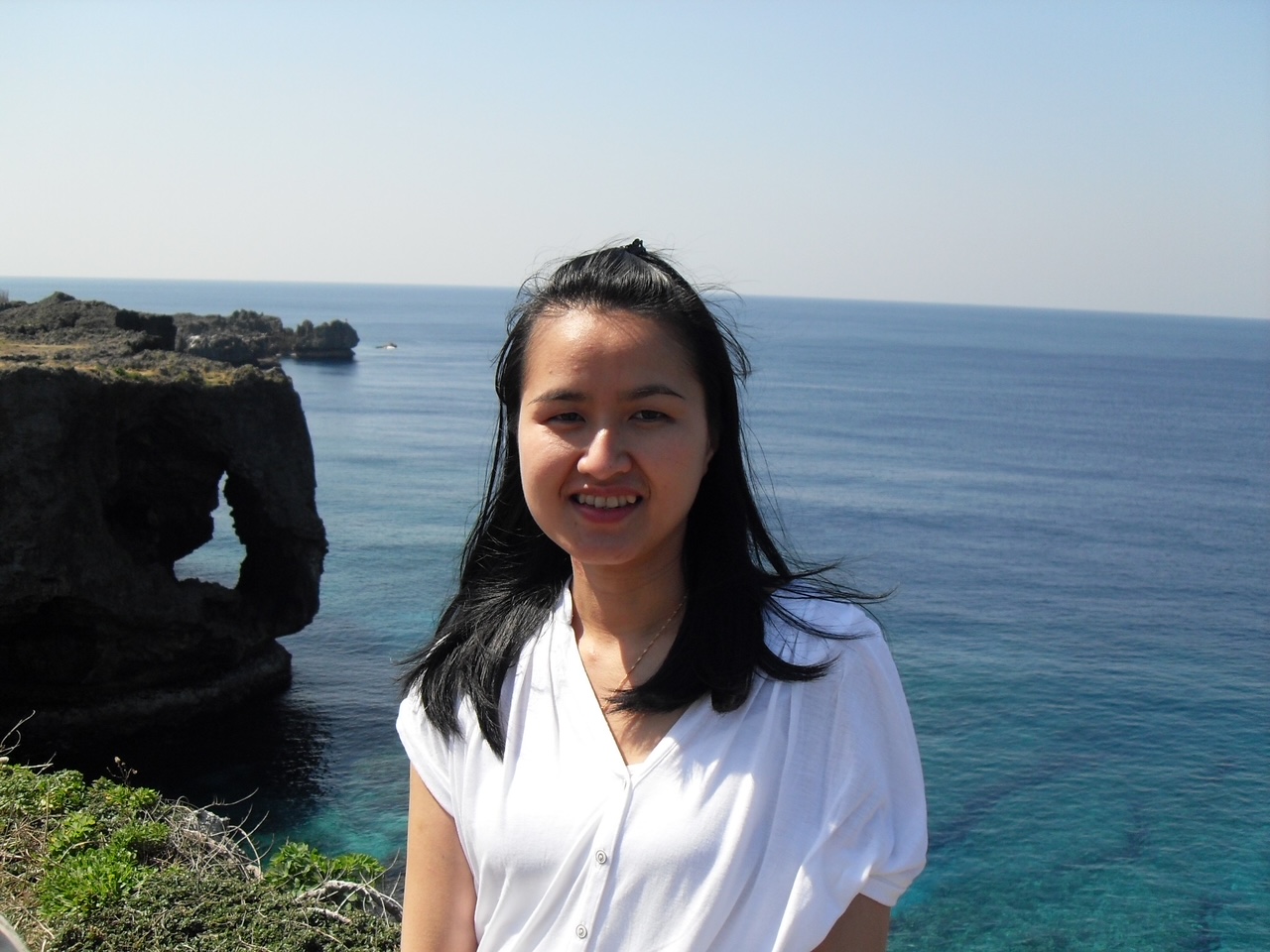
Thu Van Dinh, Research Unit Technician
Email: thuvan.dinh@oist.jp
I grew up in a small village near Ho Chi Minh City-Viet Nam. After finishing high school in my hometown, I went to France to continue my study.
I completed the Master in Biochemistry in France before moving to Singapore and Ireland with my small family.
I joined OIST since September 2012 and have been working as a research unit technician. I had opportunity to improve my knowledge and lab work skills by working on different research areas: Bacteria, Blood cells, Drosophila at OIST.
Joining Dr. Reiter’s team - Computational Neuroethology Unit, I am excited to use my skills to work on the interesting cephalopods and to learn new techniques.
I enjoy supporting researchers and students on their research while exploring cephalopods brains and behaviour.
Besides work, I am passionate about gardening and cooking.
Lab Alumni
Pedro Rafael Lopes Castelhanito
Rotation Student
Aditi Pophale
PhD Student
Keishu Asada
Fieldwork Technician
Nobuaki Mizumoto
Interdisciplinary Postdoctoral Scholar (with Bourguignon Unit)
Natacha Roux, JSPS postdoctoral fellow
Ethan Thomas Rickards
Rotation Student
Kazumichi Shimizu
Postdoc
Jeff Liner
Research Unit Technician
Paulette García Andaluz
Rotation Student
Saffira Yan Tjon
Rotation Student
Yasuko Rudisel
Research Unit Technician
Taha Basheir Hassan Soliman
Research Unit Technician
Miyu Nambu
Rotation Student
Tojo Rakotoaritina
Rotation Student
Rika Nakamura
Research Unit Technician
Minato Miyaket
Rotation Student
Balashwethan Chockalingam
Rotation Student
Sen Hadife
PhD Student



